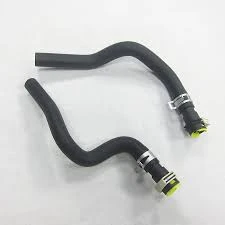Understanding Spindle Oil Seal Function and Importance in Machinery Performance
Understanding Spindle Oil Seals Importance and Applications
In the realm of machinery and mechanical systems, spindle oil seals play a crucial role in maintaining operational efficiency and extending the lifespan of equipment. This article delves into what spindle oil seals are, their importance, the materials used, and their applications across various industries.
What are Spindle Oil Seals?
Spindle oil seals are specialized components designed to prevent the leakage of lubricating oil from rotating spindles in machines. They serve as barriers that contain the oil within the spindle assembly, ensuring that it lubricates the moving parts effectively while preventing contaminants from entering the system. These seals are critical in applications where high-speed rotation and high temperatures are present, making their design and material choice essential.
Importance of Spindle Oil Seals
1. Leak Prevention The primary function of spindle oil seals is to prevent oil leakage. In machinery, oil leaks can lead to significant losses in lubrication, resulting in increased friction and wear of mechanical components. This can cause premature failure of parts, leading to costly repairs and downtime.
2. Contamination Protection In addition to containing oil, these seals protect the internal parts of the machinery from dust, dirt, and other contaminants. By preventing foreign particles from entering the spindle assembly, oil seals help maintain a clean operating environment, which is vital for the longevity and efficiency of the equipment.
3. Reduced Maintenance Costs Properly functioning spindle oil seals can significantly reduce the need for maintenance. By containing the lubricant and preventing contamination, machines operate more smoothly and reliably, thus minimizing unexpected repairs and maintenance interventions.
4. Enhanced Performance As spindle oil seals prevent oil leaks and contamination, they contribute to the overall performance of machinery. This means that equipment can run more efficiently, reducing energy costs and improving productivity.
Materials Used in Spindle Oil Seals
The material choice for spindle oil seals is critical, as they must withstand various operational stresses, including heat, pressure, and chemical exposure. Common materials include
- Nitrile Rubber (NBR) Known for its resistance to oil and fuel, NBR is one of the most commonly used materials for oil seals. It offers excellent elastic properties and durability.
spindle oil seal

- Fluoroelastomer (FKM) This material is used in high-temperature applications due to its ability to withstand extreme thermal conditions and aggressive chemicals. FKM seals are often found in aerospace and automotive applications.
- Polyurethane Known for its excellent wear resistance and flexibility, polyurethane seals are ideal for applications that require high resilience and strength.
- Metal Components Some spindle oil seals incorporate metal to provide additional strength and support, especially in high-pressure environments.
Applications of Spindle Oil Seals
Spindle oil seals have a wide range of applications across various industries, including
1. Automotive In vehicles, these seals are essential for the longevity of engines and transmission systems. They help retain lubricating oil while ensuring that contaminants do not compromise the system.
2. Industrial Equipment Machinery such as lathes, mills, and conveyor systems rely on spindle oil seals to maintain oil integrity, ensuring that moving parts operate efficiently.
3. Aerospace High-performance aircraft components utilize advanced oil seals to prevent oil leakage in critical systems, where reliability and safety are paramount.
4. Marine Applications In marine engines and gearboxes, spindle oil seals protect against harsh environments and saltwater exposure, which could lead to corrosion and mechanical failure.
Conclusion
Spindle oil seals are a fundamental component in a wide array of mechanical systems, playing a vital role in oil retention, contamination prevention, and ultimately the reliable operation of machinery. Understanding their importance, the materials used, and their specific applications can help in making informed decisions regarding maintenance and upgrades of various machines, ensuring optimal performance and longevity. As industries continue to evolve, the development of more advanced sealing solutions will undoubtedly contribute to the innovations in mechanical design and operation.
-
Simplifying Oil Changes: A Comprehensive Guide to Oil Drain Plugs and Their Variants
News Aug.04,2025
-
Mastering Oil Drain Maintenance: Solutions for Stripped, Worn, and Upgraded Oil Plugs
News Aug.04,2025
-
Fixing Oil Pan Plug Issues: Leaks, Stripped Nuts, and the Right Replacement Solutions
News Aug.04,2025
-
Everything You Need to Know About Oil Drain Plugs: Sizes, Fixes, and Upgrades
News Aug.04,2025
-
Choosing the Right Oil Drain Plug: A Guide to Sizes, Materials, and Drain Innovations
News Aug.04,2025
-
A Complete Guide to Automotive Drain Plugs: Types, Problems, and Innovative Solutions
News Aug.04,2025
-
The Ultimate Guide to Car Repair Kits: Tools and Essentials Every Driver Should Own
News Aug.01,2025
Products categories















